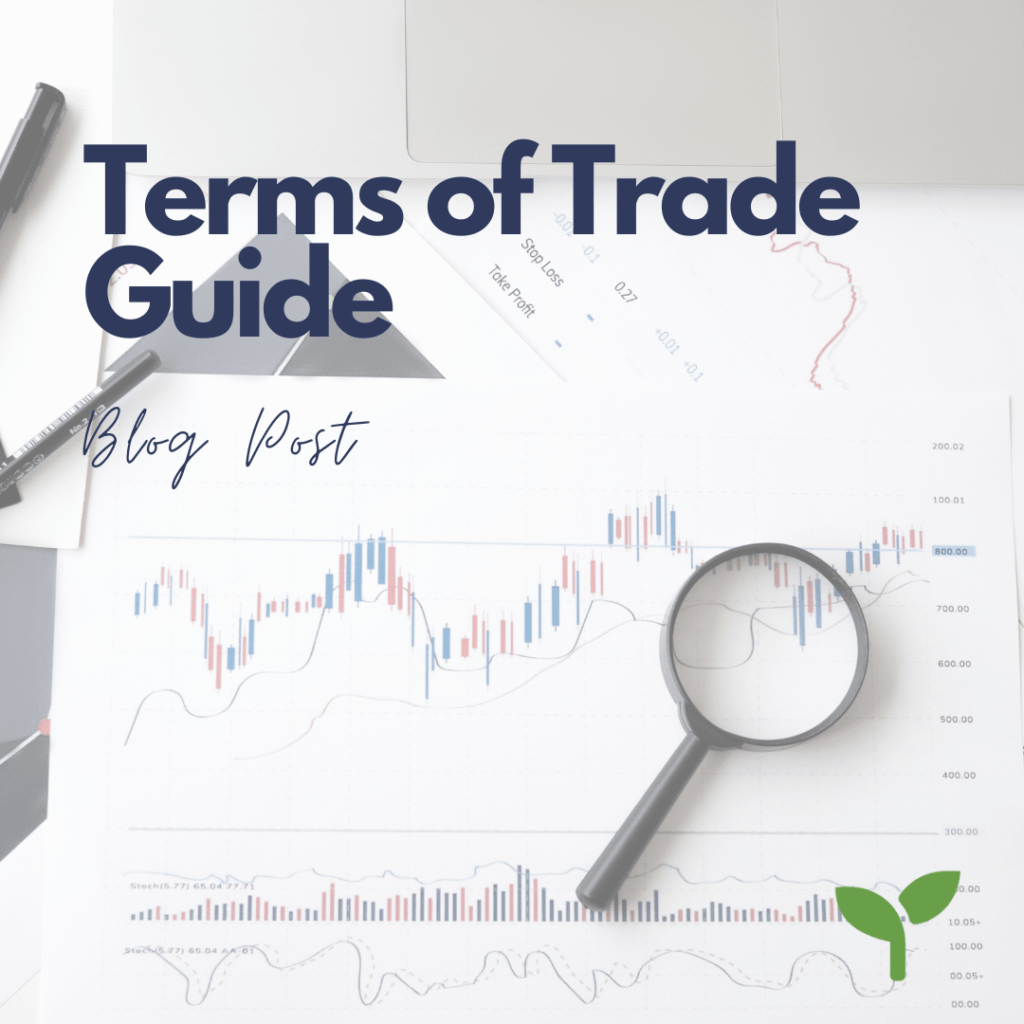
Mindset: Parkinson’s Law
27th July 2022
The Organisational Review Guide
9th September 2022Terms of Trade is a document which depicts the terms and conditions of a sale.
They form a contractual relationship between the buyer and the seller. Businesses must have robust Terms of Trade to ensure each party understands their rights and obligations. This guide contains advisory information to help you when creating your own Terms of Trade. To maintain the effectiveness of your Terms of Trade it is important to regularly review and update them to reflect any changes to your business or legislation.
Terms of Trade must be specific and thorough as they are often the subject of litigation.
Best practice is to obtain acceptance of the Terms of Trade from your customer before they’ve made their first purchase; otherwise, they may be unenforceable. Effective Terms of Trade minimise bad debts and reduce the likelihood of litigation.

We recommend that your Terms of Trade be available on your website, no matter how they are originally presented to the customer.
Every business has different areas of exposure to risk so carefully consider what Terms of Trade (and how you ensure customers / clients agree to them) best suits your business.
A company cannot simply send their Terms of Trade to a customer and expect them to be binding.
A customer must specify that they have read and agreed to the Terms of Trade. It is important to note that unless there is a clause specifying otherwise, the Terms cannot be changed without the agreement of both parties.
The method the customer uses to accept the Terms of Trade depends on the nature of your business.
If your Terms of Trade are on the back of an invoice, it is important to reference the Terms of Trade on the front page – this may involve having a tick box to indicate acceptance of the Terms. This ensures that the customer knows they are there and can read and agree to them. It is also prudent to discuss the Terms of Trade with the customer so you know that they understand them.
If the nature of your business requires lengthy Terms of Trade which are adapted to the requirements of each particular customer, you may require the customer to initial each page then sign and date the last page to indicate that they agree to the Terms.
For those who sell online, you may either have a checkbox to indicate acceptance of the Terms of Trade or a note at the end of the checkout process stating ‘by continuing with this purchase you acknowledge that you have read, understood and agree to our Terms of Trade’.
Overview of standard terms (or clauses)
- Parties
- Goods or Services
- Price
- Payment
- Delivery
- Risk and Insurance
- Reservation of title
- Installation
- Limits on Liabilities
- Warranty
- Miscellaneous e.g. indemnity, credit check etc.
Clauses to include in your Terms of Trade
Review the following clauses and determine which to include in your Terms of Trade.
It’s important to follow the correct process to ensure the effectiveness of your Terms of Trade. Don’t provide the goods or services until your customer has accepted the Terms. Failure to get agreement could result in a later claim that the client was not aware of the terms and did not agree to them.
There are three areas which can only be enforced if the customer has agreed to them: charging interest, charging debt collection costs, and retaining ownership of goods until payment has been made. Include provision for these in your Terms of Trade. Depending on your relevant local laws there may be other clauses which must be included to be enforceable – we recommend discussing this further with your solicitor.
The other party – ensure you identify the legal entity you’re engaging with and record their name in the Terms of Trade
- Individual
- Company
- Partnership
- Trust
Goods or services
- Include a thorough description of the nature of the goods or services.
- Where product specifications are included, are customary or reasonable tolerances (or variances) allowed for? E.g. allowable tolerances in dimensions.
Price
- Indicate if the quoted price is exact or only an estimate.
- State if the price is fixed or variable, e.g. a component of price may be subject to fluctuations in exchange rate.
- Clearly define if the price is inclusive or exclusive of (or other applicable taxes).
- State the period of time the proposal or quote will remain valid.
Payment terms – include provision for the answers to the following questions:
- Is the price payable cash on delivery or is credit given?
- How many days after receipt of invoice must payment be made within?
- What is the interest rate on credit provided?
- Will penalty interest accrue on an unpaid debt if payment is not made by due date?
- Is the debtor to incur the supplier’s costs of pursuing the debt?
- Should a personal guarantee be obtained from the directors or trustees?
Delivery
- Where relevant indicate how, when and where goods will be delivered.
- Specify who is responsible for paying any associated delivery costs.
- If there are any consequences for late delivery, specify.
Risk and insurance – include provision for the answers to the following questions:
- When does the risk in goods transfer to the other party?
- Are there any associated risks relating to installation?
- Is insurance required?
- Who pays any necessary insurances?
Ownership / Reservation of Title
- Define when ownership of the goods transfers to the buyer, e.g. on delivery, upon full payment.
- State if you or your agent (supplier) have right of entry to the party’s premises to repossess goods.
- Include provision for reclaiming goods or proceeds where goods have been intermingled or sold.
Installation
- Where applicable, state clearly if the buyer is required to provide suitable premises, accessibility or services and amenities
Limits on liabilities
- State the extent to which your liability is limited, e.g. limited to the invoice value of goods
- Clarify whether you are liable for indirect losses, e.g. loss of profit
- Disclose that you will not be liable for incorrect use
Note that many countries have consumer legislation which cannot be contracted out of and may restrict the extent to which you can limit your liability. It is important to limit your liability only to the extent permissible by your relevant law.
Warranty
- State the length and terms of any relevant warranty on the goods or services.
Miscellaneous clauses
Consider the following miscellaneous clauses that may be relevant to your business:
- Variation of terms (allows terms to be modified by notice in writing to buyer)
- Change of buyer details
- Right to cancellation
- Intellectual property
- Indemnity
- Governing laws
- Privacy
- Credit Checks
- Notices
- Force majeure e.g. ‘act of God’, terrorism, war, strike, etc.
Things to discuss with your solicitor
This guide has provided you with general terms to include in your Terms of Trade as a starting point. We will happily review this guide with you to identify the terms most relevant to you and your business. It is, however, recommended you enlist the help of your solicitor to finalise your Terms of Trade. Ensure your solicitor advises you of the legality of each provision and whether any additional provisions are required. This will ensure the document meets the legal requirements and offers your business the necessary protection.
If you would like to discuss this or would like to find out more about how we can help you, please book in a call with us here.
Just starting out? You might be interested to read our blog about business planning.



